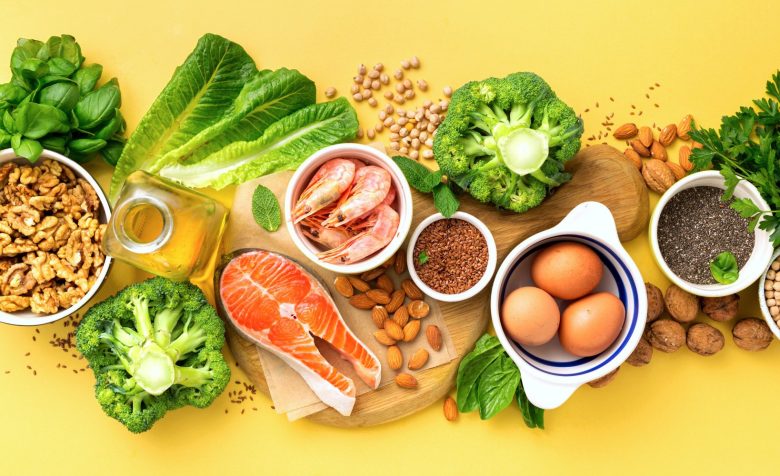In our fast-paced society, eating healthy can seem like an impossible task. It’s easy for us to become overwhelmed by the countless diets, trends and ideas that are bombarded at us every day. Fueling your body with healthy foods doesn’t have to be difficult or boring. Incorporating wholesome ingredients can improve your mood and energy levels.
Imagine starting your day with a sense of vigor and being ready to take on whatever challenges you face. Making mindful food choices can help you achieve a healthier life that is good for your mind and body. Explore some of the top healthy foods you should be eating every day and learn how small changes can make a big difference in your health.
Healthy eating is important
Healthy eating is essential to good health. A healthy diet provides your body with the nutrients it needs to function properly, from energy production and immune support.
By choosing foods that are rich in vitamins and minerals, you will be able to maintain optimal bodily functions. These nutrients are essential for maintaining optimal body functions.
What you eat has a positive impact on your mental health as well. A balanced diet can improve mood and cognitive performance. This will help you to stay focused all day.
Proper nutrition also helps to manage weight, and reduces chronic diseases like diabetes and heart disease.
By establishing a pattern of regular healthy eating, you can create long-term habits which will transform your lifestyle and your health. This commitment will help you feel more alive and vibrant every day.
Whole grains: Benefits and Examples
Whole grains contain a lot of nutrients. They retain the entire grain, including bran, endosperm, and germ. They are richer in fiber, vitamins and minerals.
Eating whole grains improves digestion and helps maintain a healthy body weight. Fiber keeps you feeling fuller longer and promotes gut health. Whole grains are also linked to a lower risk of heart disease.
Brown rice, quinoa and barley are all examples. Each one adds a unique flavor to your meal while supplying nutrients such as magnesium and iron.
It is easy to incorporate whole grains into your daily diet. Add texture to salads by substituting brown rice for white or adding quinoa. The versatile grains can be used in any meal plan and still boost nutritional value.
Leafy greens – nutritional value and types
Leafy greens contain a wealth of vitamins and minerals. Low in calories, but high in fiber. They’re a great choice for those who want to maintain a healthy body weight.
The list of the most nutrient dense foods includes Swiss chard, Swiss kale, and spinach. Spinach is a great source of iron and magnesium, while kale has a high concentration of vitamins C and K.
Arugula’s peppery taste adds zing to your dishes. Collard greens are calcium-rich and can be eaten raw or cooked.
These vibrant leaves will not only add color to your meal, but they are also good for your health. They add color and substance to your meals, whether you blend them in sauces or toss into soups. Pick a different variety every week to get the most out of them!
Lean protein: Sources and benefits
Lean protein is essential for maintaining good health. They are necessary for muscle repair, hormones production and immune function.
Lean proteins include turkey breast, chicken breast, beans, lentils and tofu. These choices provide a high-quality source of protein without excess saturated fat. These foods can help you to digest food better and reduce your calorie intake.
Lean proteins can also help with weight loss. You will feel fuller for longer when you eat lean proteins than if you ate carbs or fats. This reduces the desire to snack in between meals.
Lean proteins also support metabolism because they require more energy to digest than other macronutrients. Include them in your daily diet to fuel your body effectively and build strength.
Experimenting with different preparations–grilling chicken or adding legumes to salads–can enhance flavor while boosting nutritional value effortlessly.
Why healthy fats are important and where to get them
Healthy fats are essential to our health. They help support brain function, absorb vitamins and provide energy that lasts. Healthy fats are better for your health than unhealthy fats that can cause heart disease.
These healthy fats can be found in avocados, seeds, nuts and olive oil. Avocados can be used in salads and smoothies to add a creamy texture. Also, nuts and seeds are great snacks. They’re packed with nutrients to keep you fuller for longer.
Omega-3 fatty acids are found in fatty fish like salmon and mackerel. These essential fatty acids promote heart health and decrease inflammation.
It’s easy to incorporate healthy fats in your diet. You can substitute butter with olive oil while cooking, or drizzle it on roasted veggies for an extra taste. Balance is key. By embracing these healthy options and enjoying other food groups, you can create a balanced eating plan.
Superfoods that you should be including in your daily diet
Superfoods are packed with nutrition. These foods are rich in antioxidants, vitamins and minerals.
Blueberries are a top contender. Not only are they delicious, but they also improve brain function and heart health.
Quinoa makes a great alternative. It is gluten-free, and contains all nine essential amino acid. This makes it a complete source of protein that will keep you satisfied for longer.
Chia seeds deserve mention too. A small amount of chia seeds contains a lot of fiber, Omega-3 fatty acids and other essential nutrients.
Do not overlook kale. It’s a leafy green that is rich in vitamins A, K, and C. Add some to your smoothies or salads for added nutrition and flavor.
These superfoods can enhance your meal while improving your health.
These foods are great for your diet.
Start small. Include one or two healthy food items in your weekly meals. It is easier to adjust without feeling overwhelmed.
Blend leafy greens with fruits like bananas and berries to make smoothies. Fruits like bananas or berries can mask spinach and kale, giving you an extra boost of nutrients without compromising taste.
Use whole grains instead of refined grains when cooking. You can use brown rice in place of white rice, or quinoa instead. This simple swap adds fiber and nutrients.
Include a lean source of protein in your meals. Examples include chicken breasts, chickpeas or tofu. They will help you feel fuller for longer and repair your muscles after a workout.
Try adding avocados to your sandwiches or drizzle olive oil over vegetables before roasting. It adds flavor and provides essential fatty acid.
Have fun! Make it fun!
The conclusion of the article is:
To maintain overall health, it is important to eat a variety healthy foods every day. Whole grains, leafy vegetables, lean protein, and healthy fats are all essential nutrients for your body.
Superfoods can provide you with an additional boost of vitamins and minerals. Not only is it important to eat healthier, but also to create a lifestyle that nurtures the mind and body.
To keep the experience fresh, try out new recipes and cooking techniques. Over time, small changes can have a big impact. Prioritizing these healthy options will help you achieve better health today and tomorrow. Adopting these healthy eating habits could be the best decision you ever make!




